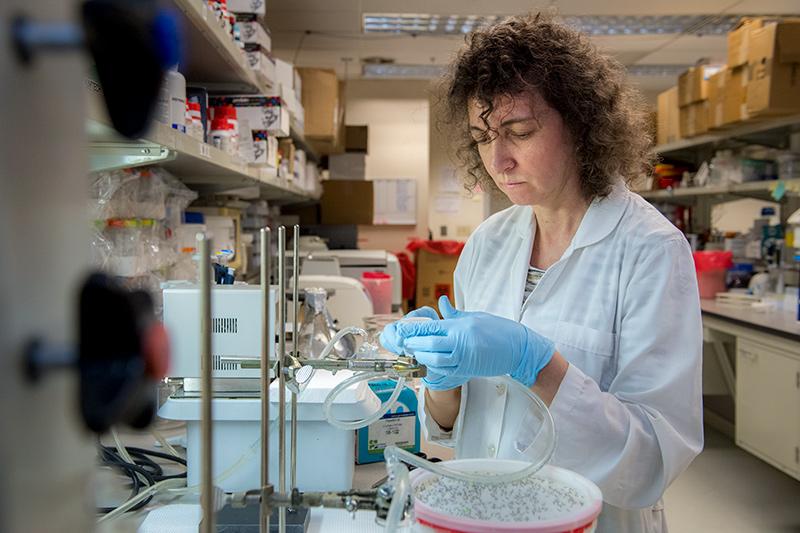Tulane researcher awarded $1.9 million to study mosquitoes that transmit viruses
Patricia Scaraffia, PhD, assistant professor in the Department of Tropical Medicine and member of the Vector Borne Infections Diseases Center at Tulane's School of Public Health and Tropical Medicine, was recently awarded a five-year $1.9 million grant from the National Institutes of Allergy and Infectious Diseases to study the mechanistic regulation of ammonia metabolism in Aedes aegypti mosquitoes, vectors of Zika, dengue, yellow fever and chikungunya viruses.
Despite aggressive worldwide attempts to control mosquito populations, current strategies remain only partially effective. A better understanding of mosquito metabolism could lead to the discovery of novel metabolic targets for vector control.
Ammonia, one of the metabolic by-products of blood meal digestion, cannot be stored inside cells, and therefore nitrogen balance must be tightly regulated to prevent ammonia toxicity. In the absence of a urea cycle for ammonia disposal, mosquitoes either directly excrete ammonia or metabolize it efficiently through specific pathways that were not thought to be present in mosquitoes.
"What remains unknown is how these metabolic pathways for ammonia detoxification are regulated," Scaraffia said.
She says the research is expected to uncover mosquito-specific regulatory mechanisms under high demands of ammonia detoxification.
"It is also expected that what can be learned in Ae. aegypti mosquitoes through traditional and advanced technologies will be broadly applicable to identify regulatory mechanisms in other arthropod vectors of diseases, as well as in other biological systems,” Scaraffia said.
"The develop of fundamental knowledge toward the identification of metabolic targets or regulators can assist in the development and implementation of better mosquito control strategies to improve public health."

